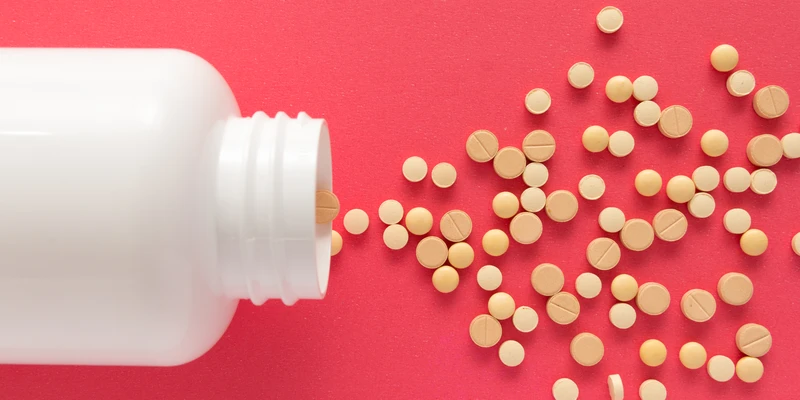- What is Wellbutrin (Bupropion)?
- What Does Wellbutrin Do to the Body?
- Potential Side Effects of Wellbutrin
- Can You Use Wellbutrin to Help Reduce Drinking?
- Wellbutrin’s Potential for Alleviating Cravings for Alcohol
- How Is Wellbutrin Used in Addiction Treatment?
- How Does Wellbutrin Help You to Stay in Recovery?
- Who Can Take Wellbutrin?
- Getting Help for Alcohol Use Disorder
Wellbutrin is an antidepressant utilised in the treatment of depressive disorders and to help people quit smoking. Due to its other off-label uses, it has also been suggested that it may be effective for the management of alcohol use disorder (AUD).
Does it help with alcohol cravings in AUD? Let’s take a closer look.

What is Wellbutrin (Bupropion)?
Wellbutrin, commonly known as Bupropion, is an antidepressant that increases the levels of certain neurotransmitters in the brain, namely dopamine and noradrenaline. This results in an enhanced mood. Compared with other antidepressants, it does not affect serotonin levels, and it does not also cause sedation. ‘
Wellbutrin is also prescribed for smoking cessation and is also used to treat other conditions such as ADHD, fatigue, sexual problems, and weight problems. In the streets, it is called “welbys”, “wellies” or “barnies”. Wellbutrin is usually taken in large quantities to get the desired effect; it can be ingested, snorted, or injected to experience a stimulant effect similar to cocaine.
What Does Wellbutrin Do to the Body?
Wellbutrin boosts mood by elevating dopamine (the happy hormone) and noradrenaline (norepinephrine). These substances in the brain are responsible for the regulation of mood and energy. Moreover, this medication also blocks some of the specific receptors in the brain involved in nicotine and alcohol consumption, hence its effectiveness in smoking cessation and reduced cravings in AUD.
Potential Side Effects of Wellbutrin
Wellbutrin can cause side effects, which may range from mild to severe. The most frequent adverse reactions are dry mouth, restlessness, nausea, constipation and insomnia, which may appear at the beginning of the treatment and then decrease as the body gets used to the medication. Some of the other mild effects are anxiety, dizziness and weight fluctuations.
There are severe adverse effects, although they are not common, and a visit to the doctor is required as soon as possible. These include seizures, which is a big concern, especially at high doses or in any person with specific risks. In addition to this, Wellbutrin, though rarely, can cause an increase in blood pressure and, therefore, may result in hypertension in some patients. Other serious risks which are uncommon include seizures, irregular heartbeat, and the occurrence of suicidal thoughts or behaviours.
Can You Use Wellbutrin to Help Reduce Drinking?
Although the FDA has not officially recommended Wellbutrin for the treatment of alcohol use disorder (AUD), current research shows that Wellbutrin, in combination with Naltrexone, leads to a reduction of binge-drinking days per month as well as managing the withdrawal symptoms that are characteristic of alcohol dependence.
Research has also pointed out that Wellbutrin is efficient in decreasing the amount of alcohol taken in, especially in subjects who also suffer from depression, thus highlighting its effectiveness in managing both mood and substance use disorders. However, such treatment should be taken with caution since alcohol dependence is a delicate issue that needs special interventions to help one recover.

Wellbutrin’s Potential for Alleviating Cravings for Alcohol
Wellbutrin has garnered interest as a potential treatment for alleviating alcohol cravings, particularly in individuals with AUD. It works in the body by enhancing the levels of dopamine and noradrenaline, which are responsible for regulating mood and energy in the brain. It also antagonises or blocks some of the nicotinic receptors in the brain, which in turn can result in reduced alcohol cravings and withdrawal symptoms.
However, given that the drug is still a relatively new treatment for the management of AUD, further research is still needed to set treatment guidelines for this purpose.
How Is Wellbutrin Used in Addiction Treatment?
In addition to its use in depression and obesity, Wellbutrin is also employed in addiction treatment because of its following benefits:
Alcohol Withdrawal Syndrome
Although Wellbutrin is not a primary treatment for Alcohol Withdrawal Syndrome, it may be used in some cases to support mood stability and reduce the risk of depressive symptoms during withdrawal. Its effects on dopamine and noradrenaline can help address fatigue and low mood often experienced during alcohol withdrawal syndrome.
Cravings in Alcohol Use Disorder
Wellbutrin can be useful in treating AUD as it may modulate the cravings for alcohol in patients by affecting the reward system in the brain and blocking specific receptors involved in alcohol abuse. This way, it enhances the levels of dopamine and noradrenaline. These neurotransmitters are involved in the reward circuit of the brain, and this circuit is dysregulated in individuals with substance use disorders. In this way, Wellbutrin can help normalise these chemicals in the brain, resulting in a decreased urge to drink alcohol and promoting abstinence. Moreover, this drug also enhances mood and energy while an individual is in recovery.
How Does Wellbutrin Help You to Stay in Recovery?
In this case, it can help support those people in treatment for AUD by decreasing some of the psychological and physical aspects of withdrawal. It acts on the neurotransmitters in the brain to assist in the treatment of alcohol dependence by reducing the chances of relapse and improving the subject’s mood during the recovery period.
This is especially helpful because many people become depressed and anxious when they decide to stop drinking. Also, Wellbutrin can increase energy levels and improve the subject’s ability to participate in therapeutic measures and activities.
Who Can Take Wellbutrin?
Wellbutrin, or bupropion, is used mainly in the treatment of major depressive disorder in adults and for the prevention of seasonal affective disorder. It is safe for adults who have no history of seizure disorders, bulimia, or anorexia, or those stopping alcohol or sedatives abruptly, as these conditions increase the risk of seizures, which are known to occur with this medication.
Also, Wellbutrin is not recommended for children or adolescents. It may be prescribed for other conditions, including ADHD or smoking cessation, but this should be done with the advice of a doctor so that they can determine the risk involved based on the patient’s medical history.
More recently, Wellbutrin has been utilised for use in patients with substance abuse including AUD, meth addiction, and cannabis addiction to name a few. However, before initiating Wellbutrin treatment, your doctor must check if this medication is right for you. Your doctor will evaluate your medical history and assess you for any underlying medical condition to ensure a safe course of treatment.

Getting Help for Alcohol Use Disorder
Are you or someone you know struggling with alcohol abuse and alcoholism? Seek help from your trusted addiction specialist or registered rehabilitation centres. At Sierra Recovery, we understand the unique challenges that you face, and we help you face alcohol addiction head-on. Our dedicated and competent team will support your needs throughout your recovery.
Frequently Asked Questions
Does Wellbutrin help people quit drinking?
Yes, Wellbutrin may help some individuals quit drinking by reducing cravings and managing the withdrawal symptoms. While not explicitly approved for AUD, it can alleviate anxiety and improve mood during recovery. Due to potential risks and side effects, it should be used under professional supervision as part of a comprehensive treatment plan.
Does Wellbutrin help with alcohol withdrawal symptoms?
Yes, Wellbutrin can be useful in treating certain alcohol withdrawal symptoms since it can help with cravings and also improve anxiety and depression. This is because it helps regulate dopamine in the brain, which enhances mood and energy levels. However, it should be administered with caution and under the supervision of a medical professional.






